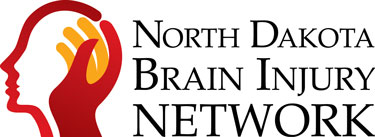Brain Injury Prevention
Most Traumatic Brain Injuries are Preventable
Someone in the US sustains a traumatic brain injury (TBI) every 23 seconds. While most of these injuries occur among children, adolescents, young adults, and people older than 75, males who are 14 to 24 years old are at the greatest risk.
People who already have TBIs are also at a greater risk for sustaining another brain injury.
How Can You Prevent a Brain Injury?
- Avoid falls. Using step stools, handrails, safety gates on stairs, or window guards can prevent people from falling. In the winter, wear ice grippers on the bottom of your shoes, keep sidewalks shoveled and deiced, and adjust your gait for more stability.
- Use seat belts. Everyone in a vehicle should wear a seat belt. Children younger than 12 should always sit in the back seat. Infants, toddlers, and children - according to their weight - should use child safety seats or booster seats.
- Drive unimpaired. Avoid alcohol and driving. Many options exist to avoid needing to drive after consuming alcohol, including using a ride service, or phoning friends or family. Avoid distracted and drowsy driving.
- Wear bike helmets. When worn correctly, bike helmets are 85% effective in preventing brain injuries.
- Protect playground surfaces. There should be at least 12 inches of wood chips, mulch, sand, pea gravel, or safety-tested rubber mats that extend six feet in all directions from the equipment.
- Use mouth guards and helmets during sports and recreational activities. Mouth guards can help cushion a blow to the lower jaw and lessen the chance for a concussion. Sports helmets protect your head from equipment, collisions with other players, and falls.
- Lock firearms away and use gun locks. Approximately 91% of firearm-related brain injuries result in death.
- Don't use drugs. An overdose can induce respiratory depression that can lead to anoxic or hypoxic brain injury.
- Help prevent a stroke. A stroke is considered a brain injury. Monitor your blood pressure, cholesterol, keep active, and eat healthy. Lose weight if you need to, don't smoke, and talk to your doctor about aspirin or other medications.
Resources
- Centers for Disease Control and Prevention – Traumatic Brain Injury
- North Dakota Health and Human Services – Prevention and Healthy Living
- STEADI – Older Adult Fall Prevention
- The Dangers of Distracted Driving
- Distracted Driving Information & Guidance
- The Ultimate Guide to Drowsy Driving
- Drunk Driving Among Students & Teens – A Resource Guide for Teen Drivers and Their Parents
- A Comprehensive Guide on Road Safety for Parents
- Blood Alcohol Content Calculator
- Safe Kids Worldwide. North Dakota has three chapters: a Bismarck/Mandan chapter, a Fargo/Moorhead chapter, and a Grand Forks chapter.
- American Stroke Association
